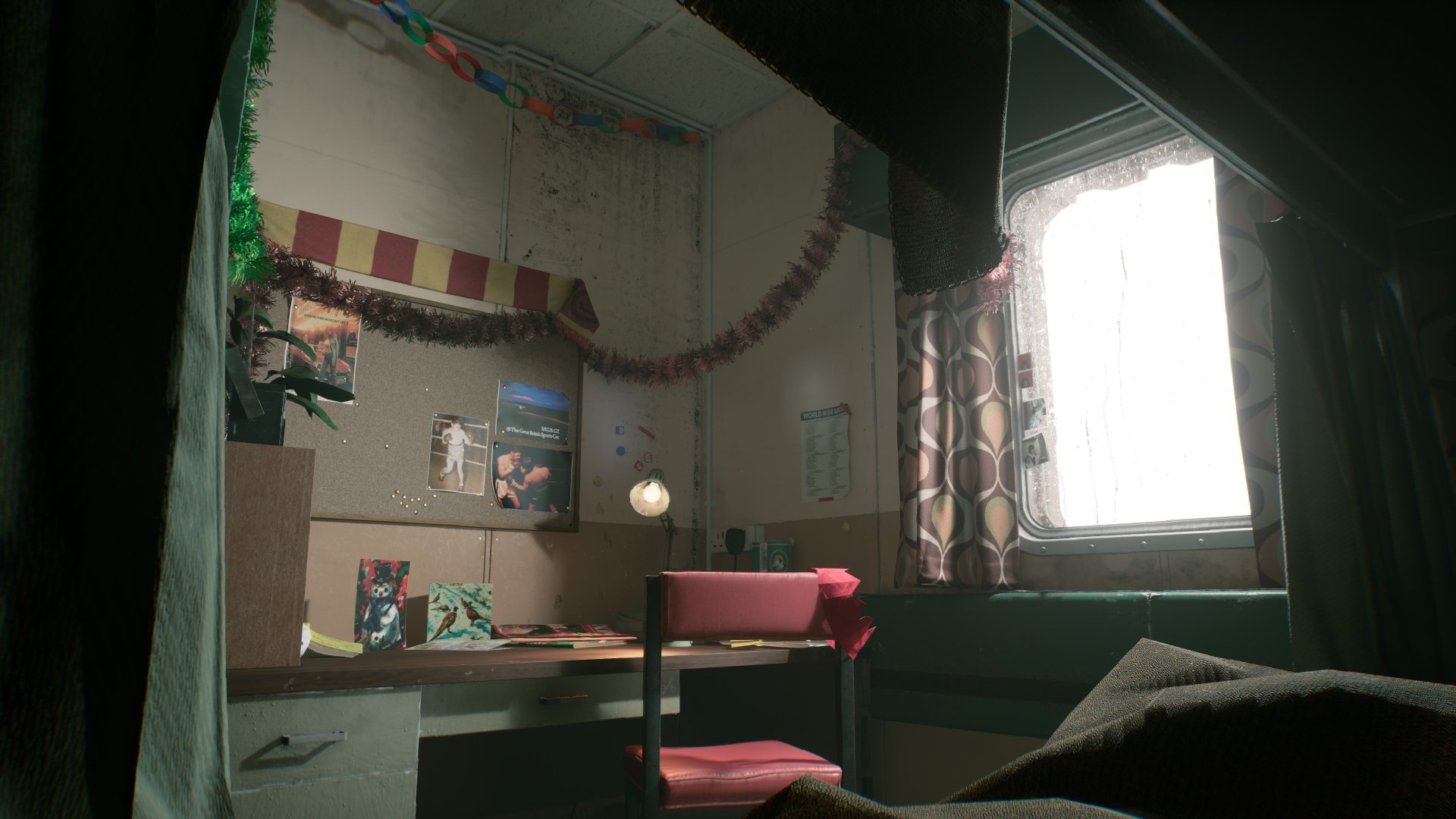
It's a big rig out there.
Abandoned locations go hand in hand with horror games where players can be isolated, vulnerable, and, if you’re anything like me, confused. So Still Wakes the Deep’s location isn’t out of the ordinary for its genre, but even still, an oil rig off the Scottish coast is a pretty sick setting for some terrifying encounters.
“It’s not the most glamorous setting, it’s not a fantastical setting, which players like,” associate art director Laura Dodds tells me. “We also don’t tend to hear stories about working people. I guess that’s why it’s not been focused on previously, but it’s brilliant.”
It’s true that the Beira D oil rig isn’t traditionally beautiful, but it is striking. With pipes spewing fire into the foggy sky, rust crusting most of the outer pipes, and a bare-bones but charming kitchen and lounge, its intricate layout makes it a sight to behold and a thrill to explore.
“The Beira D is authentic to an oil rig because they are incredibly disorientating,” Dodds says. “We found loads of 360-degree video guides, and you’re going down tight little corridors with tonnes of piping passing all these nested buried spaces, you could turn around and have no idea which part of the rig you’re in.”
Navigating the Beira D towards the beginning of Still Wakes the Deep isn’t easy, but if you’re having a really hard time with it, then you can turn on hints that will help point you in the right direction. However, after some time, you can eventually get used to the wiggly layout. Not only does each section of the rig have a very distinct style, with the social quarters opting for a similar vibe to those temporary classrooms that pop up in the playground of almost every UK school at least once, while engineering is full of pipes, boilers, and other regular old mechanical doohickies.
(Image credit: The Chinese Room)
“I think that from a design point of view, we took a few liberties with the Beira D,” lead developer, Rob McLachlan says. “We made a rig that worked for us. It’s quite a large rig, with a lot of places, places to hide, expanses to appreciate, and very clear zones.”
“Rigs are built in a modular way,” McLachlan continues. “That was wonderful for us because it helps the player to focus on where they are. They can say, ‘Well, I’m in accommodation, or I’m in the admin module, or I’m in processing,’ and it helps you compartmentalise the map. That really helped us to make each area distinctive and work for the game. So you get a sense of progression.”
The rig is out in the wild, and no one is coming to check up on you.
There’s no shame in getting lost, but if you do get turned around, then you can also rely on all the signs that are scattered around the rig. I actually found myself using these signs quite a lot while navigating the Beira D, even after everything had hit the fan. It’s important that the rig’s crew know the fastest way possible to an area, so all the signs are often very helpful and are the quickest way to get to your desired location.
But this complex layout isn’t just fun and games, it also makes the horrors in Still Wakes the Deep decidedly worse. Not only are you not entirely familiar with the best way to dodge certain scary places, but there’s no sign of help, after the chaos begins and the communication to the mainland is wrecked, everything else that happens is basically just the old adage ‘if a tree falls in the middle of a forest and no one is around to hear it does it really make a sound?’ but on steroids. The rig is out in the wild, and no one is coming to check up on you. “I don’t think I’ve ever really thought about oil rigs, Dodds says. “They’re just somewhere else. I don’t think about where my oil and gas come from.”
The Beira D oil rig really is a stellar location for a horror game, not only is it rugged and cool to explore, but you’re well and truly isolated as soon as you set foot into Still Wakes the Deep, more so than any cabin in the woods or haunted old mansion.






